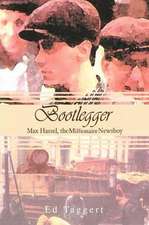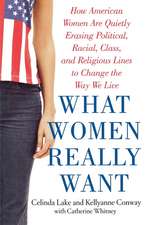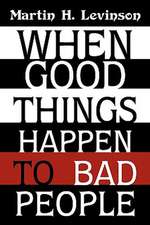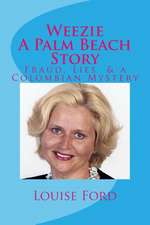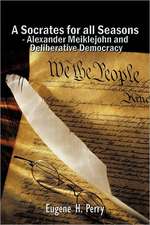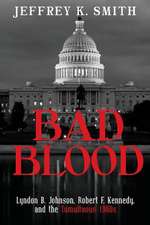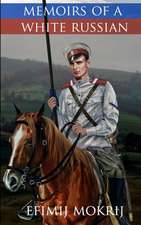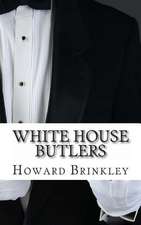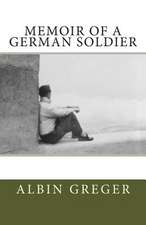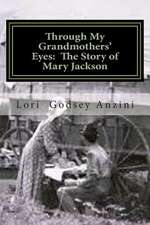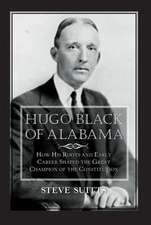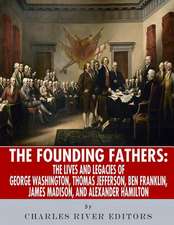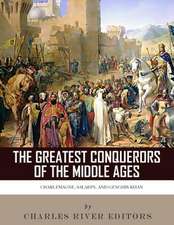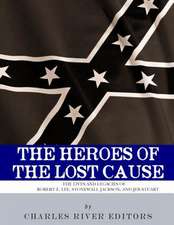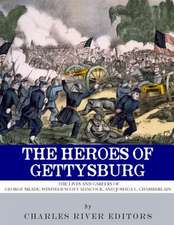Here's the Deal: A Memoir
Autor Kellyanne Conwayen Limba Engleză Hardback – 21 iul 2022
As a highly respected pollster for corporate and Republican clients and a frequent television talk show guest, Kellyanne Conway had already established herself as one of the brightest lights on the national political scene when Donald Trump asked her to run his presidential campaign. She agreed, delivering him to the White House, becoming the first woman in American history to manage a winning presidential campaign, and changing the American landscape forever. Who she is, how she did it, and who tried to stop her is a fascinating story of personal triumph and political intrigue that has never been told…until now.
In Here’s The Deal, Kellyanne takes you on a journey all the way to the White House and beyond with her trademark sharp wit, raw honesty, and level eye. It’s all here: what it’s like to be dissected on national television. How to outsmart the media mob. How to outclass the crazy critics. How to survive and succeed male-dominated industries. What happens when the perils of social media really hit home. And what happens when the divisions across the country start playing out in one’s own family.
In this open and vulnerable account, Kellyanne turns the camera on herself. What she has to share—about our politics, about the media, about her time in the White House, and about her personal journey—is an astonishing glimpse of visibility and vulnerability, of professional and personal highs and lows, and ultimately, of triumph.
| Toate formatele și edițiile | Preț | Express |
|---|---|---|
| Paperback (1) | 122.24 lei 3-5 săpt. | |
| Threshold Editions – 29 oct 2024 | 122.24 lei 3-5 săpt. | |
| Hardback (1) | 107.08 lei 23-35 zile | |
| Threshold Editions – 21 iul 2022 | 107.08 lei 23-35 zile |
Preț: 107.08 lei
Preț vechi: 130.03 lei
-18% Nou
Puncte Express: 161
Preț estimativ în valută:
20.49€ • 22.25$ • 17.21£
20.49€ • 22.25$ • 17.21£
Carte disponibilă
Livrare economică 04-16 aprilie
Preluare comenzi: 021 569.72.76
Specificații
ISBN-13: 9781982187347
ISBN-10: 1982187344
Pagini: 512
Ilustrații: 16-pg 4-c insert
Dimensiuni: 152 x 229 x 43 mm
Greutate: 0.7 kg
Editura: Threshold Editions
Colecția Threshold Editions
ISBN-10: 1982187344
Pagini: 512
Ilustrații: 16-pg 4-c insert
Dimensiuni: 152 x 229 x 43 mm
Greutate: 0.7 kg
Editura: Threshold Editions
Colecția Threshold Editions
Notă biografică
Kellyanne Conway served as senior counselor in President Trump’s White House. She was the founder of the polling company, inc./WomenTrend, a business she had for twenty-one years, and now runs KAConsulting LLC. Kellyanne served as the campaign manager to the Trump-Pence presidential campaign, becoming the first woman to successfully manage such a campaign. She is one of the most quoted and noted pollsters on the national scene. As a “fully recovered” attorney, Kellyanne is licensed to practice law in four jurisdictions. She holds a law degree, with honors, from George Washington University Law School. She is mother to four school-age children.
Extras
Chapter 1: Golden TimeChapter 1
I have an early memory of my father.
The two of us are eating pancakes together, sitting at the kitchen table like normal families do, acting as if the scene was certain to repeat itself a million times over. So here’s what’s strange about that father-daughter breakfast: I’m not sure if it really happened or if it’s only wishful thinking on my part. But I cling to that early, early memory of us because it’s the only one I have.
John Kainath Fitzpatrick was his name. I was three when he left for “the other woman” and “the other child.” He and my two grandfathers had eight children with their wives and another eight children out of wedlock with their… nonwives. The men in our family didn’t just have side pieces. They didn’t just have comares, as we say in Italian. They had side families. And it wasn’t a secret to anyone. They all went off to be with those other families, leaving their original wives and children to face their own new normals and fend for themselves. Which is how I came to be raised by a houseful of strong, independent, wonderfully loving women who were pretty sure the whole world revolved around me.
I was born Kellyanne Fitzpatrick in Camden, New Jersey, on January 20, 1967. I favored my father’s Irish side, with light skin and bright blue eyes, quickly becoming a stocky and curious little girl who was bursting with energy and thought almost everything was fun. My mother, Diane DiNatale Fitzpatrick, 100 percent Italian, the youngest of four sisters, had expected to devote her life to raising a big, happy family. Instead she was married at twenty-one, had me at barely twenty-three, and was divorced at twenty-six, never to seriously date again. When my father left, she got busy, not mad, ready to do whatever it took to provide for herself and especially for me—shielding me from adult problems and letting me be a kid.
Jobs at her father’s Chrysler-Plymouth auto dealership, the local bank, and then a higher-paying position as a gaming supervisor at Atlantic City’s Claridge Casino allowed her the dignity of work and an ability to spoil me by 1970s and 1980s New Jersey standards (read: inexpensively). We moved back in with her mother and two unmarried sisters at the old homestead, 375 Hendricks Avenue in tiny Atco, where the four women shared bedrooms so I could have my own.
My grandmother, Antoinette Lombardo DiNatale, was the unquestioned matriarch of our family. She, like my father’s mother, Claire Muriel (Kainath) Fitzpatrick, had the selflessness, patience, and poise of a woman who had trudged through the Great Depression, foreign wars, and battles at home. Grandmom, as we called my mother’s mother, suffered through a devastating car crash in her forties that took the life of her sister-in-law and left Grandmom bedridden for a year. She was told she would never walk again. She heard what the doctor said, then willed her way through it with prayers to St. Jude (the patron saint of lost causes), a fused hip, the hint of a limp, and zero self-pity.
My father’s mother had crippling arthritis and buried two of her eight grandchildren, one from leukemia at age eight and another from an automobile accident at eighteen. Despite my father’s long absence, I maintained loving relationships with his sisters, Aunt Gail and Aunt Ruth, and their children, Gaillynn, Tony, Sammy, Diana, A.J., and Jillese, and later my father’s son Scott.
Grandmothers Antoinette and Claire did nothing for the glory, for the praise, for the honor, or for the money. Nothing. They were ladies with limited formal education and endless wisdom. They certainly had plenty to complain about. But to this day, I never remember either of my grandmothers complaining about anything. They smiled through their physical pain and emotional scars. They made our lives easier. And they would remain friends and travel buddies for decades past their children’s divorce.
They were just spectacular.
That stone rancher at the corner of Route 30 (White Horse Pike) and Hendricks Avenue was bursting with love. Grandmom and my aunts Rita (“RoRo”) and Marie (“MiMi”) all took a daily hand in raising me, as did the aunts’ married sister, GiGi (for Angela, whom we also called Angie), who stopped by nearly every afternoon with her two children, my first cousins and first friends, Renee and James (“Jay”). Together these vibrant women were South Jersey’s version of TV’s “Golden Girls,” with housecoats, biting humor, late-night dessert benders, and life lessons. Grit was practically a genetic trait with them, but so was an ability to make everyone feel welcomed, special, and loved. Our wooden kitchen table was like the town square. Visitors filled their bellies and eased their burdens. Laughter was the theme song.
My mother’s sisters were charitable with their time and modest treasure, frank in all their attitudes, and, as I can see looking back, way ahead of their time. Aunt Angie and her husband, Uncle Eddie, owned Mama D’s Italian Specialties and the Country Farm Market, thirty yards in front of my house. Aunt Rita had been a technician in a doctor’s office for decades and then owned a “custard” (soft-serve ice cream) shop and mini-golf course with Angie and Eddie next to the market. MiMi, who’d helped her father run his businesses, later returned to teaching eighth-grade math. She was known to her students as strict and mean because she didn’t take excuses for late assignments and didn’t try to be their friend. Then, years later, when they’d run across her around town, they’d often remark, “Thank you. You cared about us. You prepared me for high school. You taught me how to think.”
These women didn’t preach equality. They lived it. Why march in a parade or label yourself when your back door swings open for all comers, your heart and home open to all? My values and compassion for others were instilled by them, their careful nudging, our shared Catholic faith and their adherence to the Golden Rule. They knelt for the Lord and stood for the flag. Their love was unsparing and unconditional. What all that meant for me was an unshakably secure upbringing despite whatever circumstances might have pointed the other way. Whenever I felt awkward or unsure of myself, as all kids do, those women were right there for me, telling me how unique I was, that I could do and be anything, and that if I changed my mind (or couldn’t cut it in “the real world”), I could always come home. Most parents and loved ones convey this to their kids. Mine absolutely meant it.
As millions of women know, you don’t need to have a child of your own to love children. We all spoil someone else’s son or daughter at some time. My aunts Rita and Marie forwent marriage and motherhood and instantly had the center of gravity in their home shift to the needs of a little one. GiGi found herself with a niece/third-child combo. Led by Mom and Grandmom, this circle of selfless women took all the love they had inside them and lavished it on me.
FROM THE DAY I started talking, I didn’t stop. Probing. Pontificating. Polling people. Performing every chance I got. Constantly asking questions that started with “how come…?” I’d line up my dolls and stuffed animals like I was in a courtroom and they were my jury. They all sat there in stunned silence as I played judge, prosecutor, defense counsel, and all the witnesses. I loved to mimic whatever I’d just seen on television, and we certainly watched a ridiculous amount of it. I had an aptitude for remembering names and numbers, dates and data. I had zero skills (still) for designing, decorating, or drawing anything. By the time I was four, everyone agreed I should grow up to be a lawyer.
My formal education got off to a bit of a rocky start when I dropped out of nursery school (pre-K). I went dutifully for a few weeks, then decided the whole thing was stupid and I’d rather hang out at home and get a real education from Grandmom. We folded clothes, cooked, and crocheted. I helped to roll the gnocchi and snap the string beans. We watched soap operas, more game shows, and, every night at six, the Channel 10 news with John Facenda or Channel 6 with Larry Kane and his successor Jim Gardner, the same Philadelphia newscasts Joe Biden was watching in Delaware. Grandmom would tell me stories about the old days and offer her perspective on handling different people and different situations. She’d sneak in a little crème de menthe or sloe gin. Her lessons seemed wise at the time, and they still do. Even as a little girl, I recognized that our family was different. Not different-bad, but different. When I entered kindergarten at St. Joseph’s Catholic School in nearby Hammonton, where I would stay for the next thirteen years, I was the only child of divorce in my class.
We didn’t know what we didn’t know, but our days and lives were constantly full. Five nights a week, we played poker, dominoes, pinochle, and Kings in the Corner at the kitchen table. Lifelong friends and new acquaintances from work or church slipped in the back door unannounced. It was 30th Street Station in there. God forbid that anyone thought of calling first. They knew a hot meal and warm conversation would always be waiting. Maybe they’d stay a night or three.
I realized later that the conversations were contemporary and the content somewhat controversial. Abortion, divorce, homosexuality/AIDS, alcohol, drug and gambling addictions, adultery, arrest. The family friend who left his wife and five kids for another man. The nun who left the convent to get married. The local business owner who lost it all at the craps tables. Yet I cannot recall a single political conversation. Not one. I suppose the women of the house voted for Democrats, at least until Ronald Reagan came around, and certainly for that handsome young Catholic, John F. Kennedy. But the pictures that hung on our walls weren’t of presidents or politicians. They were the pope and the Last Supper and my latest artwork from school, along with the crucifixes, scapulars, and saint statues that loomed in almost every room. I was taught to rely on God, my family, and myself—not some politician who would never know me… literally.
The one exception to the “politics-free” childhood occurred in August 1974. I was seven years old. The Watergate hearings were on TV. And I was prancing around the house with homemade “Impeach Nixon” buttons on my cotton dress. I’d cut them out of a piece of paper and used safety pins. I hardly knew who Nixon was. I certainly didn’t grasp the concept of impeachment. I’d heard people saying Nixon should be impeached, and I guess I was following the crowd, annoyed that these tedious hearings had preempted our regularly scheduled game shows and soap operas.
My cousins Renee and Jay slept over almost every weekend. The three of us were less than three years apart, and I was the youngest. They were like siblings to me. The card players had us empty ashtrays and fetch mixed drinks. Saturday mornings meant Jay trying to pry me awake so that my nearby sleeping mother couldn’t hear us, then us dumping an entire box of sugary cereal and the entire sugar bowl into the biggest Tupperware we could find, grabbing two ladles, and watching cartoons for hours before Renee and I would leave for dance school. Renee guided me through the female rites of passage and gave big-sister, tough-love advice. We spent countless nights side by side in her canopy bed, dreaming and scheming, imagining our future husbands, children’s names, and destinies. Jay, ten months my senior, made me the brother he never had, and I have all the scars on my knees and elbows to prove it. From sliding into home plate on the concrete “field” to flying off his Huffy bike. From Jay I also got an above-average knowledge of all things football and became a field hockey fan who’d yell “Pandemonium!” from the sidelines.
Every winter, Grandmom and Aunt Rita headed to Florida for three months. Mom and I would move in with Aunt Angie, Uncle Eddie, Jay and Renee, so there would be someone to look after me while Mom was at work. Uncle Eddie treated me like one of his own, including me on hunting and fishing trips, even letting me call him “Uncle Daddy” when I was terrified to participate in the Father’s Day celebrations in elementary school.
Once or twice, someone may have suggested show business as a possible career for me. I took dance and voice classes and did a stint at modeling school. And my growing repertoire of imitations was vastly expanded by the premiere of Saturday Night Live. I was allowed to stay up late and watch because my aunts loved that show. By Sunday afternoon, I was slaying my small audiences with my killer reenactments of Gilda Radner’s Roseanne Roseannadanna and of Dan Aykroyd and Jane Curtin’s point-counterpoints on “Weekend Update.”
“Dan, you pompous ass.”
“Jane, you ignorant slut.”
Shades of CNN and Fox segments to come, even if I wasn’t entirely sure yet what all those insults meant. But I had my doubts about showbiz as a career for me, and a lot of it was how I looked. Until around fifth grade, I was taller than the boys and chubbier than the girls. Thankfully, nature and hormones did their thing. I slimmed out, the boys shot up, and all was right with the world again.
The friends I made in those years would still be my friends decades later, indeed some of my very closest friends in life. Christine Ordille and I found each other in kindergarten. She was the youngest of seven. Her father died when she was nine. She spent a lot of time with our family, and me with hers. We’d stay in my room for hours, experimenting with music and makeup and talking to boys on the phone. So many of us went through K–12 in the same school together: Linda, the Kathys, Sheri, Patty, Rohna, Francine, Antoinette, Steven, and Benjamin. My neighbors Jimmy Baker and Todd Ferster have been by my side for decades.
High school brought more friends and lots of Petrongolos, including Michaela, with whom I’ve shared life’s biggest, best, saddest and funniest moments. She was the only person I’d ever met named Michaela, decades before every third girl seemed to have it, and her friendship came without jealousy or judgment. Since Michaela was one of ten children and I was one of one, we had very different backgrounds. There were Petrongolos in every grade. Her parents and siblings are in my life. Her sisters Marina and Angela are among my very close friends.
Given my father’s disappearing act and the family tradition he was carrying on, I certainly could have developed an anti-male ethos. But my upbringing oriented me differently. Uncles, cousins, and male family friends provided strength, compassion, and life skills. And incredibly, the women never spoke ill of the men who had wounded them. The prevailing wisdom was that a family’s dirty laundry should remain inside the house. What I saw as restraint, grace, resilience, and self-reliance, others might view as a failure to dump good-for-nothing jerks who’d refused to honor their wives as equals worthy of respect. What I got was an education—unspoken but potent—in women’s empowerment. My mother, grandmother, and aunts made their own way on their own terms, independently and self-reliantly.
The fact is, I never heard a negative word about my father from any of them. That helped fortify me when, at age twelve, my father suddenly reappeared, watching from the back of St. Anthony of Padua Catholic Church as Jay and I and other parishioners received the Catholic sacrament of Confirmation. My mother had run into him somewhere and invited him.
Soon after that, my father asked if the three of us might meet for dinner. I agreed to go, more for my mom than for me. I was curious, but I could have gone either way. Then I had to decide whether to invite him into my life. Christine gave great advice. I said yes, got myself a father and a half brother, Scott, and learned the value of forgiveness, redemption, and second chances. He quickly became a cool dad, taking my friends and me to arcades, scary movies, and Phillies games, and would stay in my life and grow in my heart for the next forty years.
Though I wasn’t even a teenager yet, I could see there was a certain unspoken tragedy to him, just leaving my mother the way he did. He missed out on a great wife. He stepped back into my life at an age when girls really need paternal attention and affection. When I finally had children of my own, I’d see no point in passing on any of that pain or regret to the next generation. We loved having PopPop John active in our lives.
OUR LITTLE ATCO wasn’t even officially a town. It was just a speck on the map in Waterford Township, Camden County, a part of New Jersey that looks more toward Philadelphia than to New York. This was a part of New Jersey that deserved the slogan on the license plates: “Garden State.” I always felt at home with the wide-open spaces, the solid traditions, and the genuine simplicity. Atco wasn’t even named for a person or a geographical feature, the way most places are. It was named for a company. Local lore has it that, in 1904, when the Atlantic Transport Company of West Virginia placed an order for four large vessels with a shipbuilder in Camden, the surrounding township became known as Atco, a sign of appreciation for all the new jobs. To the extent that outsiders know the place at all anymore, it’s often because of the high-octane Sunday afternoons at the Atco Dragway, New Jersey’s first drag strip. My mother’s father, a short, stocky man ironically nicknamed “Jimmy the Brute,” had owned the Atco Speedway, another drag strip, which closed before I was born.
Though our house was only half a block off White Horse Pike, the old Route 30 between Philadelphia and Atlantic City, the scattered subdivisions hadn’t yet crowded out all the fruit farms and other open spaces around us. I got my first summer job at twelve, packing blueberries at a farm just down the Pike in Hammonton, the self-proclaimed “Blueberry Capital of the World.” The operation was owned by Billy DiMeo and his family. Billy and my mom were high school classmates and the adult leaders of our parish youth group. They may have regretted bringing impressionable tweens and teens to see movies like Grease and Saturday Night Fever. In the early years, my friend Brenda would walk down the path from her grandmother’s house to my grandmother’s house by seven thirty every morning, and my mother or an aunt would drive us to the Indian Brand packing shed. For eight solid summers, I would do my best to uphold Hammonton’s blueberry pride.
Blueberry packers took the pints filled by blueberry pickers and covered the containers one by one with cellophane, using a little square form to make sure the seal was even and tight, before wrapping everything with a rubber band and putting the pint into a crate. Each crate held a dozen pints. We were paid sixteen cents for each crate we filled, and I was so fast, people would come by to watch me. My mother stopped by sometimes to help, but we would usually end up firing her because she kept eating the blueberries instead of packaging them. They were delicious, plump, sweet, and warm from the sun.
The blueberry shed is where I learned the meaning of working hard. The DiMeos, Mike DeLuca, Gina, the Roseannes, Lynnie and Shelley, Renee, Jay, and Christine worked there, too. Whatever gifts God gives, I came to understand, depend on the rocket fuel of hard work. With that, almost anything is possible.
In our family, money was just a means to an end, not the end itself. My mother taught me this not only through her own prodigious work ethic but also by the way she always put her family first. No matter how much or little we had, I learned early on that what mattered was to give more than you take and to work harder than everyone else. If you outwork them, you’ll probably outsmart them. There was so much to learn from my mother. When I got into my teens, sometimes I would wait up for her to drive home from her night shift, and we would talk while she ate a late dinner. Even though she was often working, she was always present and available to me. I called her at work regularly, almost as often as my kids FaceTime me now. Feeling neglected wasn’t ever an issue as Diane’s daughter.
Despite her warm and supportive nature, Mom was anything but a pushover. Her standards and sense of propriety were as plain as the gold crucifix around her neck. In the fall of 1981, my freshman year of high school, I was sitting on our powder blue velvet couch with Michaela, watching TV. Something came on—I can’t remember what it was—that somehow offended fourteen-year-old me.
“God damn it!” I hissed from the living room couch.
My mother was stirring a pot in the kitchen. I could see her in the distance. The words had barely come out of my mouth when she came whipping around the corner and straight toward me. I swear that crucifix was bouncing off her chest.
“What did you say?” she demanded.
“I don’t know,” I answered. “What did I say?”
“I heard you. What did you say?” Her question was even sharper the second time, and now she was raising the wooden spoon she was gripping in her hand. Michaela looked terrified. I knew what she was thinking. She was thinking, Your mother is going to hit you with that spoon! My mother would never hit me, though she probably should have sometimes. I could see the sauce dripping from the spoon. She was steaming mad.
“Mom—”
“You took God’s name in vain! Son of a bitch!”
“I just—”
“That’s a commandment. Don’t ever take God’s name in vain again. I don’t care if you say ‘Motherfucker! To hell with this shit!’ But don’t you ever take God’s name again.”
It was a classic case: My mother, this loving woman who wore a gold crucifix and no other jewelry and had this humble, self-denying life, also had a drunken sailor’s potty mouth. My father was the truck driver, but Mommy actually spoke like one.
Decades later, when the pre-K teacher would summon me the day after Easter to say that my sweet, well-mannered four-year-old son had acted out of the ordinary and said, “Son of aaaa BITCH!” complete with intonation and hand gestures, I would know exactly where that came from.
“Oh. He was mimicking his mommom. That’s just what my mother said after Easter Mass yesterday when someone pulled in front of her in the church parking lot,” I explained.
“At the church?” the teacher asked me, half amused, half in horror.
“Yes,” I said. “I guess that’s why we go.”
Chapter 1 ![]() Golden Time
Golden Time
I have an early memory of my father.
The two of us are eating pancakes together, sitting at the kitchen table like normal families do, acting as if the scene was certain to repeat itself a million times over. So here’s what’s strange about that father-daughter breakfast: I’m not sure if it really happened or if it’s only wishful thinking on my part. But I cling to that early, early memory of us because it’s the only one I have.
John Kainath Fitzpatrick was his name. I was three when he left for “the other woman” and “the other child.” He and my two grandfathers had eight children with their wives and another eight children out of wedlock with their… nonwives. The men in our family didn’t just have side pieces. They didn’t just have comares, as we say in Italian. They had side families. And it wasn’t a secret to anyone. They all went off to be with those other families, leaving their original wives and children to face their own new normals and fend for themselves. Which is how I came to be raised by a houseful of strong, independent, wonderfully loving women who were pretty sure the whole world revolved around me.
I was born Kellyanne Fitzpatrick in Camden, New Jersey, on January 20, 1967. I favored my father’s Irish side, with light skin and bright blue eyes, quickly becoming a stocky and curious little girl who was bursting with energy and thought almost everything was fun. My mother, Diane DiNatale Fitzpatrick, 100 percent Italian, the youngest of four sisters, had expected to devote her life to raising a big, happy family. Instead she was married at twenty-one, had me at barely twenty-three, and was divorced at twenty-six, never to seriously date again. When my father left, she got busy, not mad, ready to do whatever it took to provide for herself and especially for me—shielding me from adult problems and letting me be a kid.
Jobs at her father’s Chrysler-Plymouth auto dealership, the local bank, and then a higher-paying position as a gaming supervisor at Atlantic City’s Claridge Casino allowed her the dignity of work and an ability to spoil me by 1970s and 1980s New Jersey standards (read: inexpensively). We moved back in with her mother and two unmarried sisters at the old homestead, 375 Hendricks Avenue in tiny Atco, where the four women shared bedrooms so I could have my own.
My grandmother, Antoinette Lombardo DiNatale, was the unquestioned matriarch of our family. She, like my father’s mother, Claire Muriel (Kainath) Fitzpatrick, had the selflessness, patience, and poise of a woman who had trudged through the Great Depression, foreign wars, and battles at home. Grandmom, as we called my mother’s mother, suffered through a devastating car crash in her forties that took the life of her sister-in-law and left Grandmom bedridden for a year. She was told she would never walk again. She heard what the doctor said, then willed her way through it with prayers to St. Jude (the patron saint of lost causes), a fused hip, the hint of a limp, and zero self-pity.
My father’s mother had crippling arthritis and buried two of her eight grandchildren, one from leukemia at age eight and another from an automobile accident at eighteen. Despite my father’s long absence, I maintained loving relationships with his sisters, Aunt Gail and Aunt Ruth, and their children, Gaillynn, Tony, Sammy, Diana, A.J., and Jillese, and later my father’s son Scott.
Grandmothers Antoinette and Claire did nothing for the glory, for the praise, for the honor, or for the money. Nothing. They were ladies with limited formal education and endless wisdom. They certainly had plenty to complain about. But to this day, I never remember either of my grandmothers complaining about anything. They smiled through their physical pain and emotional scars. They made our lives easier. And they would remain friends and travel buddies for decades past their children’s divorce.
They were just spectacular.
That stone rancher at the corner of Route 30 (White Horse Pike) and Hendricks Avenue was bursting with love. Grandmom and my aunts Rita (“RoRo”) and Marie (“MiMi”) all took a daily hand in raising me, as did the aunts’ married sister, GiGi (for Angela, whom we also called Angie), who stopped by nearly every afternoon with her two children, my first cousins and first friends, Renee and James (“Jay”). Together these vibrant women were South Jersey’s version of TV’s “Golden Girls,” with housecoats, biting humor, late-night dessert benders, and life lessons. Grit was practically a genetic trait with them, but so was an ability to make everyone feel welcomed, special, and loved. Our wooden kitchen table was like the town square. Visitors filled their bellies and eased their burdens. Laughter was the theme song.
My mother’s sisters were charitable with their time and modest treasure, frank in all their attitudes, and, as I can see looking back, way ahead of their time. Aunt Angie and her husband, Uncle Eddie, owned Mama D’s Italian Specialties and the Country Farm Market, thirty yards in front of my house. Aunt Rita had been a technician in a doctor’s office for decades and then owned a “custard” (soft-serve ice cream) shop and mini-golf course with Angie and Eddie next to the market. MiMi, who’d helped her father run his businesses, later returned to teaching eighth-grade math. She was known to her students as strict and mean because she didn’t take excuses for late assignments and didn’t try to be their friend. Then, years later, when they’d run across her around town, they’d often remark, “Thank you. You cared about us. You prepared me for high school. You taught me how to think.”
These women didn’t preach equality. They lived it. Why march in a parade or label yourself when your back door swings open for all comers, your heart and home open to all? My values and compassion for others were instilled by them, their careful nudging, our shared Catholic faith and their adherence to the Golden Rule. They knelt for the Lord and stood for the flag. Their love was unsparing and unconditional. What all that meant for me was an unshakably secure upbringing despite whatever circumstances might have pointed the other way. Whenever I felt awkward or unsure of myself, as all kids do, those women were right there for me, telling me how unique I was, that I could do and be anything, and that if I changed my mind (or couldn’t cut it in “the real world”), I could always come home. Most parents and loved ones convey this to their kids. Mine absolutely meant it.
As millions of women know, you don’t need to have a child of your own to love children. We all spoil someone else’s son or daughter at some time. My aunts Rita and Marie forwent marriage and motherhood and instantly had the center of gravity in their home shift to the needs of a little one. GiGi found herself with a niece/third-child combo. Led by Mom and Grandmom, this circle of selfless women took all the love they had inside them and lavished it on me.
FROM THE DAY I started talking, I didn’t stop. Probing. Pontificating. Polling people. Performing every chance I got. Constantly asking questions that started with “how come…?” I’d line up my dolls and stuffed animals like I was in a courtroom and they were my jury. They all sat there in stunned silence as I played judge, prosecutor, defense counsel, and all the witnesses. I loved to mimic whatever I’d just seen on television, and we certainly watched a ridiculous amount of it. I had an aptitude for remembering names and numbers, dates and data. I had zero skills (still) for designing, decorating, or drawing anything. By the time I was four, everyone agreed I should grow up to be a lawyer.
My formal education got off to a bit of a rocky start when I dropped out of nursery school (pre-K). I went dutifully for a few weeks, then decided the whole thing was stupid and I’d rather hang out at home and get a real education from Grandmom. We folded clothes, cooked, and crocheted. I helped to roll the gnocchi and snap the string beans. We watched soap operas, more game shows, and, every night at six, the Channel 10 news with John Facenda or Channel 6 with Larry Kane and his successor Jim Gardner, the same Philadelphia newscasts Joe Biden was watching in Delaware. Grandmom would tell me stories about the old days and offer her perspective on handling different people and different situations. She’d sneak in a little crème de menthe or sloe gin. Her lessons seemed wise at the time, and they still do. Even as a little girl, I recognized that our family was different. Not different-bad, but different. When I entered kindergarten at St. Joseph’s Catholic School in nearby Hammonton, where I would stay for the next thirteen years, I was the only child of divorce in my class.
We didn’t know what we didn’t know, but our days and lives were constantly full. Five nights a week, we played poker, dominoes, pinochle, and Kings in the Corner at the kitchen table. Lifelong friends and new acquaintances from work or church slipped in the back door unannounced. It was 30th Street Station in there. God forbid that anyone thought of calling first. They knew a hot meal and warm conversation would always be waiting. Maybe they’d stay a night or three.
I realized later that the conversations were contemporary and the content somewhat controversial. Abortion, divorce, homosexuality/AIDS, alcohol, drug and gambling addictions, adultery, arrest. The family friend who left his wife and five kids for another man. The nun who left the convent to get married. The local business owner who lost it all at the craps tables. Yet I cannot recall a single political conversation. Not one. I suppose the women of the house voted for Democrats, at least until Ronald Reagan came around, and certainly for that handsome young Catholic, John F. Kennedy. But the pictures that hung on our walls weren’t of presidents or politicians. They were the pope and the Last Supper and my latest artwork from school, along with the crucifixes, scapulars, and saint statues that loomed in almost every room. I was taught to rely on God, my family, and myself—not some politician who would never know me… literally.
The one exception to the “politics-free” childhood occurred in August 1974. I was seven years old. The Watergate hearings were on TV. And I was prancing around the house with homemade “Impeach Nixon” buttons on my cotton dress. I’d cut them out of a piece of paper and used safety pins. I hardly knew who Nixon was. I certainly didn’t grasp the concept of impeachment. I’d heard people saying Nixon should be impeached, and I guess I was following the crowd, annoyed that these tedious hearings had preempted our regularly scheduled game shows and soap operas.
My cousins Renee and Jay slept over almost every weekend. The three of us were less than three years apart, and I was the youngest. They were like siblings to me. The card players had us empty ashtrays and fetch mixed drinks. Saturday mornings meant Jay trying to pry me awake so that my nearby sleeping mother couldn’t hear us, then us dumping an entire box of sugary cereal and the entire sugar bowl into the biggest Tupperware we could find, grabbing two ladles, and watching cartoons for hours before Renee and I would leave for dance school. Renee guided me through the female rites of passage and gave big-sister, tough-love advice. We spent countless nights side by side in her canopy bed, dreaming and scheming, imagining our future husbands, children’s names, and destinies. Jay, ten months my senior, made me the brother he never had, and I have all the scars on my knees and elbows to prove it. From sliding into home plate on the concrete “field” to flying off his Huffy bike. From Jay I also got an above-average knowledge of all things football and became a field hockey fan who’d yell “Pandemonium!” from the sidelines.
Every winter, Grandmom and Aunt Rita headed to Florida for three months. Mom and I would move in with Aunt Angie, Uncle Eddie, Jay and Renee, so there would be someone to look after me while Mom was at work. Uncle Eddie treated me like one of his own, including me on hunting and fishing trips, even letting me call him “Uncle Daddy” when I was terrified to participate in the Father’s Day celebrations in elementary school.
Once or twice, someone may have suggested show business as a possible career for me. I took dance and voice classes and did a stint at modeling school. And my growing repertoire of imitations was vastly expanded by the premiere of Saturday Night Live. I was allowed to stay up late and watch because my aunts loved that show. By Sunday afternoon, I was slaying my small audiences with my killer reenactments of Gilda Radner’s Roseanne Roseannadanna and of Dan Aykroyd and Jane Curtin’s point-counterpoints on “Weekend Update.”
“Dan, you pompous ass.”
“Jane, you ignorant slut.”
Shades of CNN and Fox segments to come, even if I wasn’t entirely sure yet what all those insults meant. But I had my doubts about showbiz as a career for me, and a lot of it was how I looked. Until around fifth grade, I was taller than the boys and chubbier than the girls. Thankfully, nature and hormones did their thing. I slimmed out, the boys shot up, and all was right with the world again.
The friends I made in those years would still be my friends decades later, indeed some of my very closest friends in life. Christine Ordille and I found each other in kindergarten. She was the youngest of seven. Her father died when she was nine. She spent a lot of time with our family, and me with hers. We’d stay in my room for hours, experimenting with music and makeup and talking to boys on the phone. So many of us went through K–12 in the same school together: Linda, the Kathys, Sheri, Patty, Rohna, Francine, Antoinette, Steven, and Benjamin. My neighbors Jimmy Baker and Todd Ferster have been by my side for decades.
High school brought more friends and lots of Petrongolos, including Michaela, with whom I’ve shared life’s biggest, best, saddest and funniest moments. She was the only person I’d ever met named Michaela, decades before every third girl seemed to have it, and her friendship came without jealousy or judgment. Since Michaela was one of ten children and I was one of one, we had very different backgrounds. There were Petrongolos in every grade. Her parents and siblings are in my life. Her sisters Marina and Angela are among my very close friends.
Given my father’s disappearing act and the family tradition he was carrying on, I certainly could have developed an anti-male ethos. But my upbringing oriented me differently. Uncles, cousins, and male family friends provided strength, compassion, and life skills. And incredibly, the women never spoke ill of the men who had wounded them. The prevailing wisdom was that a family’s dirty laundry should remain inside the house. What I saw as restraint, grace, resilience, and self-reliance, others might view as a failure to dump good-for-nothing jerks who’d refused to honor their wives as equals worthy of respect. What I got was an education—unspoken but potent—in women’s empowerment. My mother, grandmother, and aunts made their own way on their own terms, independently and self-reliantly.
The fact is, I never heard a negative word about my father from any of them. That helped fortify me when, at age twelve, my father suddenly reappeared, watching from the back of St. Anthony of Padua Catholic Church as Jay and I and other parishioners received the Catholic sacrament of Confirmation. My mother had run into him somewhere and invited him.
Soon after that, my father asked if the three of us might meet for dinner. I agreed to go, more for my mom than for me. I was curious, but I could have gone either way. Then I had to decide whether to invite him into my life. Christine gave great advice. I said yes, got myself a father and a half brother, Scott, and learned the value of forgiveness, redemption, and second chances. He quickly became a cool dad, taking my friends and me to arcades, scary movies, and Phillies games, and would stay in my life and grow in my heart for the next forty years.
Though I wasn’t even a teenager yet, I could see there was a certain unspoken tragedy to him, just leaving my mother the way he did. He missed out on a great wife. He stepped back into my life at an age when girls really need paternal attention and affection. When I finally had children of my own, I’d see no point in passing on any of that pain or regret to the next generation. We loved having PopPop John active in our lives.
OUR LITTLE ATCO wasn’t even officially a town. It was just a speck on the map in Waterford Township, Camden County, a part of New Jersey that looks more toward Philadelphia than to New York. This was a part of New Jersey that deserved the slogan on the license plates: “Garden State.” I always felt at home with the wide-open spaces, the solid traditions, and the genuine simplicity. Atco wasn’t even named for a person or a geographical feature, the way most places are. It was named for a company. Local lore has it that, in 1904, when the Atlantic Transport Company of West Virginia placed an order for four large vessels with a shipbuilder in Camden, the surrounding township became known as Atco, a sign of appreciation for all the new jobs. To the extent that outsiders know the place at all anymore, it’s often because of the high-octane Sunday afternoons at the Atco Dragway, New Jersey’s first drag strip. My mother’s father, a short, stocky man ironically nicknamed “Jimmy the Brute,” had owned the Atco Speedway, another drag strip, which closed before I was born.
Though our house was only half a block off White Horse Pike, the old Route 30 between Philadelphia and Atlantic City, the scattered subdivisions hadn’t yet crowded out all the fruit farms and other open spaces around us. I got my first summer job at twelve, packing blueberries at a farm just down the Pike in Hammonton, the self-proclaimed “Blueberry Capital of the World.” The operation was owned by Billy DiMeo and his family. Billy and my mom were high school classmates and the adult leaders of our parish youth group. They may have regretted bringing impressionable tweens and teens to see movies like Grease and Saturday Night Fever. In the early years, my friend Brenda would walk down the path from her grandmother’s house to my grandmother’s house by seven thirty every morning, and my mother or an aunt would drive us to the Indian Brand packing shed. For eight solid summers, I would do my best to uphold Hammonton’s blueberry pride.
Blueberry packers took the pints filled by blueberry pickers and covered the containers one by one with cellophane, using a little square form to make sure the seal was even and tight, before wrapping everything with a rubber band and putting the pint into a crate. Each crate held a dozen pints. We were paid sixteen cents for each crate we filled, and I was so fast, people would come by to watch me. My mother stopped by sometimes to help, but we would usually end up firing her because she kept eating the blueberries instead of packaging them. They were delicious, plump, sweet, and warm from the sun.
The blueberry shed is where I learned the meaning of working hard. The DiMeos, Mike DeLuca, Gina, the Roseannes, Lynnie and Shelley, Renee, Jay, and Christine worked there, too. Whatever gifts God gives, I came to understand, depend on the rocket fuel of hard work. With that, almost anything is possible.
In our family, money was just a means to an end, not the end itself. My mother taught me this not only through her own prodigious work ethic but also by the way she always put her family first. No matter how much or little we had, I learned early on that what mattered was to give more than you take and to work harder than everyone else. If you outwork them, you’ll probably outsmart them. There was so much to learn from my mother. When I got into my teens, sometimes I would wait up for her to drive home from her night shift, and we would talk while she ate a late dinner. Even though she was often working, she was always present and available to me. I called her at work regularly, almost as often as my kids FaceTime me now. Feeling neglected wasn’t ever an issue as Diane’s daughter.
Despite her warm and supportive nature, Mom was anything but a pushover. Her standards and sense of propriety were as plain as the gold crucifix around her neck. In the fall of 1981, my freshman year of high school, I was sitting on our powder blue velvet couch with Michaela, watching TV. Something came on—I can’t remember what it was—that somehow offended fourteen-year-old me.
“God damn it!” I hissed from the living room couch.
My mother was stirring a pot in the kitchen. I could see her in the distance. The words had barely come out of my mouth when she came whipping around the corner and straight toward me. I swear that crucifix was bouncing off her chest.
“What did you say?” she demanded.
“I don’t know,” I answered. “What did I say?”
“I heard you. What did you say?” Her question was even sharper the second time, and now she was raising the wooden spoon she was gripping in her hand. Michaela looked terrified. I knew what she was thinking. She was thinking, Your mother is going to hit you with that spoon! My mother would never hit me, though she probably should have sometimes. I could see the sauce dripping from the spoon. She was steaming mad.
“Mom—”
“You took God’s name in vain! Son of a bitch!”
“I just—”
“That’s a commandment. Don’t ever take God’s name in vain again. I don’t care if you say ‘Motherfucker! To hell with this shit!’ But don’t you ever take God’s name again.”
It was a classic case: My mother, this loving woman who wore a gold crucifix and no other jewelry and had this humble, self-denying life, also had a drunken sailor’s potty mouth. My father was the truck driver, but Mommy actually spoke like one.
Decades later, when the pre-K teacher would summon me the day after Easter to say that my sweet, well-mannered four-year-old son had acted out of the ordinary and said, “Son of aaaa BITCH!” complete with intonation and hand gestures, I would know exactly where that came from.
“Oh. He was mimicking his mommom. That’s just what my mother said after Easter Mass yesterday when someone pulled in front of her in the church parking lot,” I explained.
“At the church?” the teacher asked me, half amused, half in horror.
“Yes,” I said. “I guess that’s why we go.”
Recenzii
"Part personal chronicle and part political journey…a candid assessment of some of her colleagues in the White House and the media." –Washington Post
“Kellyanne is a true inspiration to all women. She represents the grace and strength of working moms. Her dedication to America, and its prosperity, were instrumental in the Trump Administration; and I am grateful for our friendship.” –former First Lady Melania Trump
“[Kellyanne] doesn’t pull any punches. Get the book.” –Jeanine Pirro, TV host, author, former judge, prosecutor, and politician.
"Strikingly personal…The book marks a stark contrast to the spate of tell-all tomes from former Trump aides.” –Fox News
“Kellyanne is a true inspiration to all women. She represents the grace and strength of working moms. Her dedication to America, and its prosperity, were instrumental in the Trump Administration; and I am grateful for our friendship.” –former First Lady Melania Trump
“[Kellyanne] doesn’t pull any punches. Get the book.” –Jeanine Pirro, TV host, author, former judge, prosecutor, and politician.
"Strikingly personal…The book marks a stark contrast to the spate of tell-all tomes from former Trump aides.” –Fox News
Descriere
An inside look at the tumultuous Trump administration from one of its key players, and the story of how the country’s divisions played out in Kellyanne’s own home.

